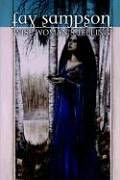Wise Woman's Telling
by Fay Sampson

Reviewed by Coral
I feel I should state, for the record, that I love the legend of King Arthur, a fact that can be traced back to my amazing High School teacher, Mrs. Isler. I'm not even all that picky about the details; if the book's good, I'll enjoy it. I can even overlook the fact that, in many books in this genre, the Romanized-Celts shouldn't be worshipping the pre-historic Mother Goddess; this book at least deserves a little credit as it mentions the Celtic gods and goddesses a couple of times.
If you know the Arthurian legend you probably know the overall concept and are familiar with at least some of the names. But, as every author has his or her own way of spelling these names, they also each have their own way of telling the story. In this book, Morgan is the youngest daughter of Gorlois, Duke of Cornwall, and his wife Ygerne. Unlike her two older sisters, Elaine and Margawse, Morgan does not want to be married or chase boys. She wants to be a boy, to hunt beside her father, to be a king. None of this earns her the love and approval she so desperately seeks from Gorlois, but that's the least of her problems. Ygerne has attracted the attention of the High King, Uther Pendragon, who conspires with Merlyn to kill her husband and take her as his wife. Morgan is devastated by this loss, swearing vengeance upon the man responsible for her father's death,
First off, I'm in no way a prude. I have no problems reading books with sexually explicit scenes. But this story just comes off as crude. I mean there's really no other way to describe, "holding the lips of my own blood-hole apart", "someone had put a finger on that spot between your legs", "Gwennol's hands, that had reached inside her mother", and "I had to pull up my skirts and thrust my own finger into my blood-hole to satisfy myself, and never mind who heard me crying". Man, I'm still cringing.
Also, it's more than a little squicky having someone refer to a nine-year old child, as "my lover" as an endearment. (Note: Nothing sexual passes between them, thankfully.) How is that appropriate in any society?
Gwennol is the story's narrator, and is another one of those impossibly old characters who nursed both Ygerne and Morgan and yet is still alive at the story's end, looking back upon her life. It's ridiculous how fictional characters like Gwennol get shoved into these quasi-historic stories and suddenly become the main character. What right does Gwennol have to be lecture Ygerne, like she is some misbehaving child? Ygerne is a woman grown, a duchess, and, though Gwennol might not like the woman's actions, has the right to choose her own life's course.
How realistic is it that a priest that still lives is being addressed as a Saint. Wasn't that title always reserved for someone who's died?
Grade: D